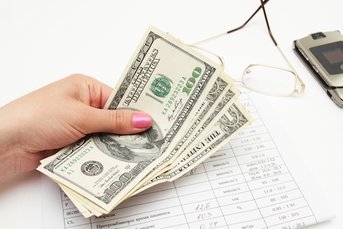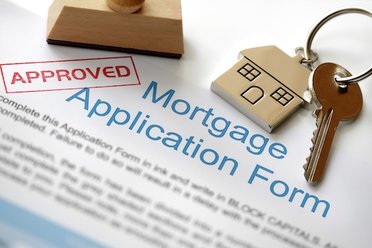
Two big terms you’ll hear a lot are earnest money deposit and down payment. They’re both about plunking down your cold hard cash but in different ways.
Let’s take a look at both of them.
What Is An Earnest Money Deposit?
Earnest money is also called an escrow deposit. When you’ve signed a real estate contract to buy a home, you are required to put a certain amount into an escrow account. This shows the seller you are serious about buying their home.
You can also think of an earnest money deposit as a good faith deposit.

Usually, it’s between 1%-2% of the purchase price. It can go as high as 10% depending on the state you live in.
If a buyer is paying cash, the seller may ask for the buyer to show a true “buy-in” by putting down more earnest money, as much as 3%.
The seller can accept, reject or counter what the buyer has placed in escrow.
When Is An Earnest Money Deposit Cashed?
When the contract is first signed, the buyer gives his agent a check. Sometimes it is never cashed. However, if the check is cashed, it is placed in an escrow account by the real estate agency.
At closing, the money is shown as a credit, and it is used to offset either part of the down payment or closing costs.
What Is A Down Payment?
Contrary to popular belief, a down payment is not paid to the lender. It’s paid directly to the seller. The remainder of the purchase price becomes your mortgage.
Down payments are either from a buyer’s personal savings, the sale of a previous home, or even a gift from a family member. They are presented at closing as a cashier’s check.
What’s the Typical Down Payment?
That depends on the type of loan you get. First time home buyers usually have a very low down payment. Typically, though, the minimum down payment is 3%.
For decades, banks considered 20% down to be the ideal amount for home buying. But let’s face it. It’s just not realistic!
Today, banks are more comfortable with smaller down payments. But, there is a catch. You’ll most likely have to pay for mortgage insurance. This is an additional monthly fee that offsets the risk that you might default on your loan.
Mortgage insurance isn’t cheap. It’s about 1% of the whole loan. That’s an additional $1,000 per year.
Got questions? Feel free to call us, 540-414-8763, or check our website: http://www.lillytitle.com
 RSS Feed
RSS Feed